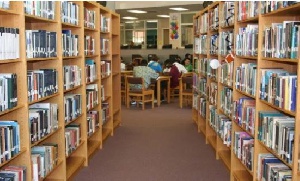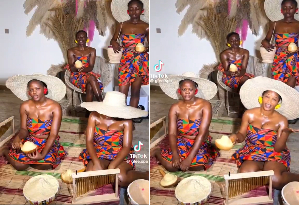A Ghanaian teenage girl is spearheading an educational initiative to help bridge the “ability to read” gap between children in rural and urban schools.
Samantha Boateng’s Read to Lead Foundation has launched a reading project designed to provide libraries in several rural areas in the country.
With high illiteracy rates among parents, there is little encouragement or emphasis on the importance of reading. But with support from partners in the US, Read to Lead Foundation has established its second library and e-reader program in the community.
The first project of the foundation is located in the Greater Accra region. Each library is stocked with 100 books including Ghanaian textbooks as well as story books with both local stories and international content.
The primary goal of the e-reader program is to create a culture of reading, where literacy becomes a foundation in the community.
Pupils are encouraged to read at least one book a month, whilst they access educational resources during and after school hours. With the e-reader program, children now have access to reading materials and encouragement to read-inside and outside of the classroom.
Head teacher of the Asuadei school, Daniel Gomado, is excited the students can now learn in and out of the classroom. “We all know what libraries do for children.
The children used to go to the district library for studies, now that we have it in our school, we will make good use of it,” he said. Mr. Gomado, however lamented the deplorable state of some classrooms in the school.
A member of the project supporting groups from the US, Brian Basset, underscored the importance of library facilities in educational system and expressed hope children in the area will benefit a great deal from the facility at their disposal.
Seventeen year old founder of the Read to Lead Foundation, Samantha Boateng, observed children in rural schools are disadvantaged in accessing quality materials to efficiently speak, write and read the English language.
She developed the interest to lend a hand when she visited Ghana from her base in the US three years ago.
Samantha is committed to empowering the rural children to develop interest in reading to enhance their academic work. “We have started in our own way to look for places that we can establish libraries there and once you have established it, half of the problem I can say is already solved,” she said.
General News of Sunday, 2 July 2017
Source: 3news.com













